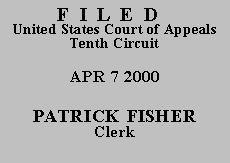

| UNITED STATES OF AMERICA, |
No. 99-6317 |
| v. |
(W.D. Oklahoma ) |
| ERVIN E. SCHATT, |
(D.C. No. CR-99-23-C) |
The relevant facts of this case are uncontroverted and arise from a United States Customs Service undercover operation in Louisiana, designed to identify and target consumers of child pornography. The Customs Service established an undercover Internet website that indicated that child pornography was available from a company located outside the United States. Schatt responded to the website by e-mail, indicating his interest in obtaining information about child pornography. The Customs Service then mailed a questionnaire to Schatt's home address in Oklahoma City, Oklahoma. Schatt returned the questionnaire, on which he indicated his interest in child pornography and requested a catalog. After the catalog arrived, Schatt placed a mail order for two videotapes depicting children engaged in sexual activity, enclosing a check for the purchase price of $85.00. The catalog stated that the videotapes would not be sent through the U.S. mail.
After receiving Schatt's order and check, Customs Service agents in Louisiana sent the ordered videotapes via government courier to other Customs Service agents in Oklahoma City. A postal inspector disguised as a courier then made a controlled delivery of the videotapes to Schatt, who was then arrested.
Schatt was subsequently indicted on counts of (1) knowingly receiving visual depictions of child pornography that were transported in interstate commerce in violation of 18 U.S.C. § 2252(a)(2), and (2) possession of child pornography in violation of 18 U.S.C. § 2252(a)(4)(B). Schatt filed a motion to dismiss the indictment, arguing that the government's transportation of the videotapes from Louisiana to Oklahoma City did not constitute transportation in interstate commerce within the meaning of the statute. After the district court denied Schatt's motion to dismiss, Schatt entered a conditional plea of guilty to Count 1 in exchange for the Government's dismissal of Count 2 at sentencing.
We review de novo the district court's legal conclusions and application of the law. United States v. Wood, 6 F.3d 692, 694 (10th Cir. 1993) (reviewing district court's dismissal of indictment based on its review of the governing statute). At issue here is whether the uncontroverted evidence could, as a matter of law, establish a violation of 18 U.S.C. § 2252(a)(2), which provides criminal sanctions against any person who "knowingly receives . . . any visual depiction [of child pornography] that has been mailed, or has been shipped or transported in interstate or foreign commerce." 18 U.S.C. § 2252(a)(2). Schatt concedes that the videotapes he ordered and received contained child pornography, and that they were transported from Louisiana to Oklahoma City. See Appellant's Br. at 4. However, he argues that the government's delivery of the videotapes was neither "interstate," as the final segment of the delivery from the Oklahoma City Customs office to his home did not cross state lines, nor "commerce," as the government is not in the business of commercial transportation. We disagree with both contentions.
The evidence shows that Schatt knowingly ordered pornographic videotapes from a source outside the state of Oklahoma. In response to this order, the Customs Service sent two specific videotapes from Louisiana to Oklahoma for delivery to Schatt. The fact that the tapes arrived first at the Customs Office in Oklahoma City before being ultimately delivered to his home does not alter the interstate nature of the transportation.(1) Nor is the commercial nature of the purchase altered by the fact that the source of the videotapes was the federal government and not a bona fide pornographer. Schatt engaged in a commercial transaction when he ordered and submitted payment for the videotapes; their resulting delivery from Louisiana to Oklahoma thus meets the requirement that the material be "transported in interstate or foreign commerce," within the purview of 18 U.S.C. § 2552(a)(2).(2)
For the foregoing reasons, we AFFIRM the judgment of the district court.
ENTERED FOR THE COURT
Stephen H. Anderson
Circuit Judge
*.This order and judgment is not binding precedent, except under the doctrines of law of the case, res judicata, and collateral estoppel. The court generally disfavors the citation of orders and judgments; nevertheless, an order and judgment may be cited under the terms and conditions of 10th Cir. R. 36.3.
1.Neither is this a case where "the federal officers themselves supplied the interstate element and acted to ensure that an interstate element would be present." See United States v. Archer, 486 F.2d 670, 682 (2d Cir. 1973). In this circuit, we have limited the applicability of Archer to cases of virtual entrapment, see United States v. O'Connor, 635 F.2d 814, 817 (10th Cir. 1980), which has not been argued in either this court or the court below.
2.In denying Schatt's motion to dismiss, the district court relied on our decision in United States v. Esch, 832 F.2d 531 (10th Cir. 1987). We note that our holding today does not rest on Esch, as that case was decided under 18 U.S.C. § 2251. However, we may affirm a judgment on any legal ground supported by the record. See Wolfgang v. Mid-America Motorsports, Inc., 111 F.3d 1515, 1524 (10th Cir. 1997).